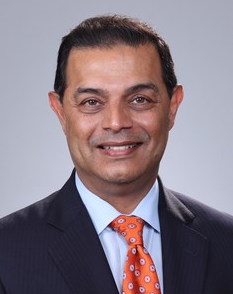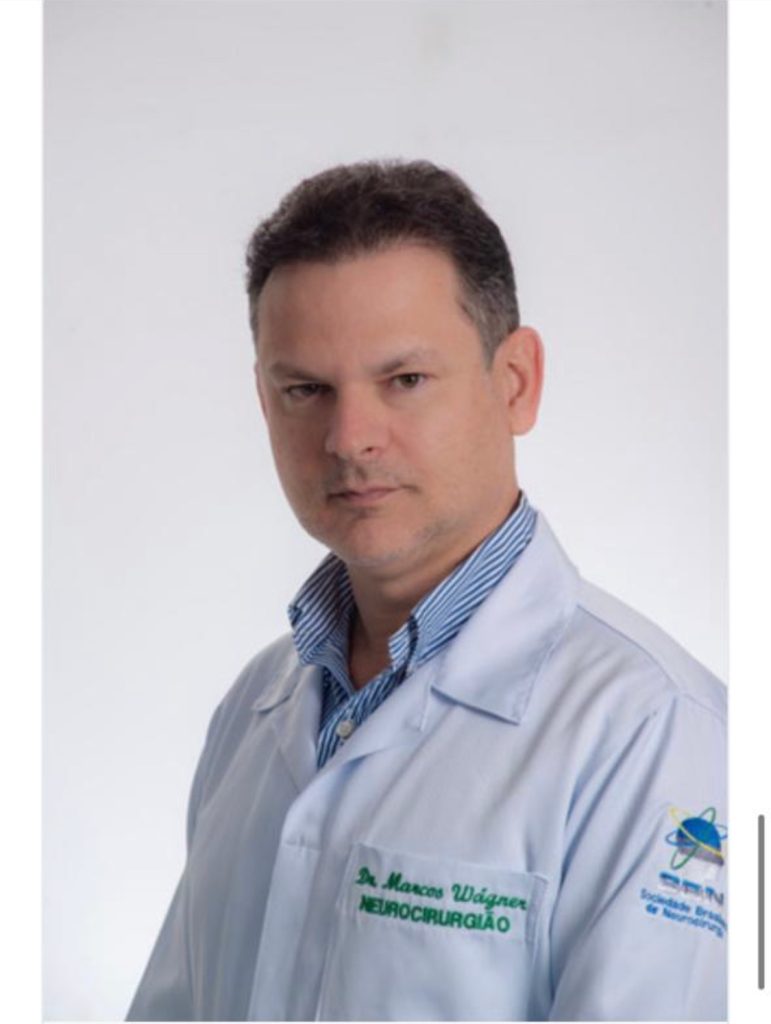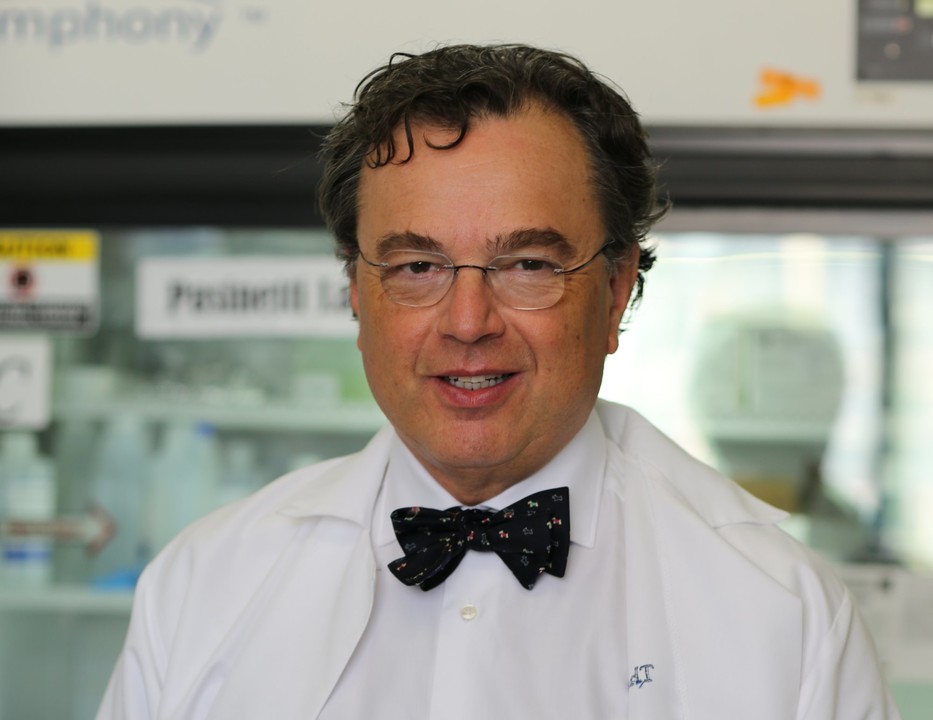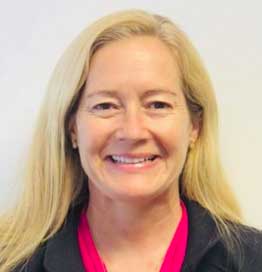Amin Kassam

Over the past two decades, Dr. Kassam has been the Chairman or led four Neurosurgery programs; pioneered and globally taught novel surgical procedures; founded or held leadership roles in several technology start-up companies; and, has held executive health care administration leadership roles needed to translate these innovations through Integrated Service Line delivery models. He is the Founder and CEO of Neeka Enterprises and recently served as the Chief Scientific Strategist, VP Neurosciences, and Chairman of Neurological Surgery for AdvocateAurora Health Care. Grounded on a unique active clinical practice, Dr. Kassam has developed an exceptional experience in minimally invasive Neurosurgery. Having led teams that performed many of the first-in-man procedures, he remains a global destination surgeon. Dr. Kassam has published over 320 peer-reviewed articles, 3 textbooks, 80 book chapters, given over 250 lectures globally and served as a distinguished guest for multiple international meetings and societies. He has an H-index of 70, RG-impact score of 47 (98th percentile), and his work has been cited over 18,000 times. He authored the 1st and 3rd most cited article in his field over the past decade and published a sentinel atlas of the human subcortical network: “The White Matter Chassis” which was placed on the 2017 Pantheon list. Over the past year, Dr. Kassam has focused on completing a Neuro-oncology textbook and on his role as the Chief Medical Officer for the National Hockey League Alumni Association. His team will be launching a trial examining Social Determinants of Health (SDoH) and quality of life of the Alumni via a purpose-built digital wellness platform to enhance self-efficacy and peer-to-peer connectivity. This represents one of the largest decentralized multinational virtual trials in this cohort. The machine learning enhanced platforms from this trial will be foundational for more generalized trials anticipated over the years in broader populations, such as Veterans and other vulnerable cohorts subject to health equity disparities. Additionally, with the emergence of the pandemic, Dr. Kassam has focused on resource optimization. Dr. Kassam’s team of data science engineers created and published AI-infused tools including web-based multi-parametric predictive COVID modeling that anticipate surges, hospital bed capacity and inform strategic planning. The team has further built a responsive four step econometric algorithm and a series of integrated tools at the DRG level that focus on strategic pandemic institutional recovery plans and quality-metric based performance measurements. Dr. Kassam has developed a broad network, including being appointed as the National Hockey League Alumni Association CMO, econometrics and optics consultant for Stryker Corporation, as well as, recently partnering with JLL Property Investments to create the next generation life sciences ecosystem. This broad and deep range combined with a track record of implementing purpose-built patient-centric Integrated Service Lines across diverse ecosystems, positions him to not only provide direct patient care, but also, be uniquely capable of providing data-driven, predictive clinical and economic insights to optimize resources during a time of unprecedented need both for patient care and academic pursuit. Dr. Kassam has emerged as a strategic thinker that can work across multiple disciplines and bring people together to make meaningful change in the service of patients.
Marcos Wagner de Souza Porto

Giulio Maria Passineti

He is currently the Program Director of the NIH funded Mount Sinai Center for Molecular Integrative Neuroresilience and the Chief of the Brain Institute Center of Excellence for Novel Approaches to Neurodiagnostics and Neurotherapeutics. He is also a Professor of Psychiatry, of Neuroscience, and of Geriatrics and Adult Development. Dr. Pasinetti is the recipient of several academic awards including the prestigious Zenith and Temple awards from the Alzheimer’s Association. Most recently, Dr. Pasinetti was awarded ”The Faculty Council Award” for academic excellence at Mount Sinai School of Medicine and “The Charles Dana Alliance for Brain Research Award” from Dana Foundation, recognizing productivity and worldwide leadership in his field of expertise, which further emphasizes his standing as an academic role model. Neurology, PROFESSOR | Psychiatry, PROFESSOR | Geriatrics and Palliative Medicine, PROFESSOR | NeuroscienceResearch Topics Aging, Alzheimer’s Disease, Amyotrophic Lateral Sclerosis, Epigenetics, Genetics, Genomics, Inflammation, Memory, Microglia, Molecular Biology, Neuro-degeneration/protection, Neurobiology, Neurology, Neuroscience, Obesity, Oxidative Stress, Parkinson’s Disease, Psychiatry, Transcriptional Activation and Repression, Transgenic Mice
Melissa King

Melissa was previously Executive Director of Americans for Cures, where, for the three years leading up to November 2020 she led the effort to lay the groundwork for Prop 14 and build the patient advocacy coalition needed to get the state ballot initiative passed. In 2020, she was Head of Field Operations for California’s Proposition 14 campaign, which secured an additional $5.5 Billion in funds for the California Institute for Regenerative Medicine (CIRM). Long before her work on Prop 14, Melissa served as a senior member of the successful 2004 campaign for California’s Proposition 71, which created the CIRM and the California stem cell program. She hired the first several key employees at CIRM to become the very first pioneers of the new state funding agency. Melissa played a central role in the formation and building of CIRM, the unique $3 billion research funding agency created by Prop 71. During the first seven years of CIRM’s operation, she worked hand-in-hand with agency Chair and its founding 29-member governing Board responsible for setting the strategic vision for the agency, as well as developing the processes and policies by which CIRM stil operates. Melissa guided CIRM’s Board through its first 1500+ hours of public meetings, the sale of the first bonds to fund the agency, as well as the development and awarding of the first billion dollars in grants, which included the Facilities Grant Program that leveraged $271 million of CIRM’s funds to attract $880 million in other support which directly contributed to $1 billion in scientific research facilities in California. Having worked on both campaigns to create and obtain funds for CIRM, Melissa is now focused on the vision of improved healthspan for all. She works to support the continued success of the research, ensuring that access and affordability of treatments is fully addressed, and the need for more diversity in science, medical research and clinical trials. She serves as a volunteer mentor for SHE CAN, mentoring a young woman scholar from Libera now attending college in the US. She is a board member at Summit for Stem Cell Foundation, serves as Chair of Regions for Wellesley College Friends of Art and is a member and past Chair of the Wellesley Business Leadership Council. Melissa has a B.A. from Wellesley College and an MBA from the Stanford Graduate School of Business.
Babak Kateb

Babak Kateb, MD, Ph.D. (h.c.), is a neuroscientist and serial neurotech entrepreneur with more than 22 years of research experience. His research has focused on introducing advanced diagnostics and therapeutics into clinical neuroscience to rapidly identify and introduce game-changing technologies to treat neurological disorders such as brain cancer, Alzheimer’s disease, Parkinson’s disease, and other brain and spinal conditions. He did his educational training at TUSOM, USC. His research fellowship was at the USC-keck School of Medicine, Department of Neurosurgery. He also studied VLSI system design at the USC Department of Electrical Engineering at the Ming Hsieh Institute; he has an Honorary Ph.D. from Uskudar University, Istanbul, Turkey. Babak established the Society for Brain Mapping and Therapeutics (SBMT) while doing his research fellowship 22 years ago at USC. He is the founding Chairman of the board of directors & CEO of the Society for Brain Mapping and Therapeutics (SBMT). He is the President and Scientific Director of the World Brain Mapping Foundation, the National Center for Nano-Bio-Electronics, and the Brain Technology and Innovation Park (BTIP), focused on integrating nanotechnology, cellular therapeutics/stem cell, medical devices, and imaging. He is a member of the advisory board of AiM Med Robotics and Chairman of the science advisory board of Infinity Arc (cancer/radiosurgery tech). Babak was the Director of Research and Development in the Department of Neurosurgery at the City of Hope Comprehensive Cancer Center. He established collaboration with NASA and published and pioneered the technique for using NASA multiwall carbon nanotubes to activate macrophages for brain cancer immunotherapy. While at the City of Hope, he received NASA Tech Brief Award for his pioneering work on sniffing cancer cells using NASA’s electronic nose. In 2010, he joined the Department of Neurosurgery at Cedars Sinai Medical Center as a research scientist. He developed a partnership between Cedars-Sinai and NASA and established a clinical trial using NASA UV imaging for intraoperative brain mapping. He also patented technology to microwave brain cancer, which the FDA approved for soft tissue; the technology also could be used for brain, liver, head and neck, prostate, and breast cancer. He was also Scientific Director and a Chief Strategy Officer (CSO) at California Neurosurgical Institute from 2015-2017, where he co-authored a nano-neurosurgery paper in Nature-Scientific Reports. He has been recognized by then Vice President Biden, the Mayor of Los Angeles, and the Governor of California for his dedication to science. In 2015, the Society for Brain Mapping and Therapeutics and World Brain Mapping Foundation Board of Directors presented him with Pioneer in Medicine award. He is collaborating with Los Alamos National Lab (LANL) and had a dual appointment with NASA/JPL as a visiting scientist. His research at NASA and LANL involves the use of Artificial Intelligence (AI), Augmented Reality (AR), Virtual Reality (VR), and supercomputing for brain mapping and therapeutics, using LANL’s advanced ultrasonic technology for brain stimulation. Babak holds patents in these areas. He has established a new publication with PLoSOne, which is called PLoSOne_ NeuroMapping & Therapeutics. He served as editor-in-chief and was the force behind three successful NeuroImage-Brain Mapping and Therapeutics special issues. He is the editor of the inaugural Textbook of Nanoneuroscience and Nanoneurosurgery, published by Taylor & Francis (2013), and the editor of the inaugural Neurophotonic and Brain Mapping (2017). Babak has been deeply involved in international neuroscience legislation through his close collaboration with the US Congressional Neuroscience Caucus and members of the Canadian Parliament. He chaired 9 Congressional briefings: Brain Mapping Days (2012-2023) at the United States Congress on Brain Mapping; one Brain Research Day at the Canadian Parliament in 2013, and one Brain Mapping Day at the joint sessions of the Australian Senate and Parliament in 2015. His initiatives have impacted the health care delivery to wounded soldiers in the US. He has been one of the key players in President Obama’s BRAIN initiative and co-author of the Neuroscience20 Brain, Spine and Mental Health and African Brain Mapping Initiative. He has founded and Co-chaired ten G20 Brain Initiative Summits (Neuroscience20/N20) since the 2014 inaugural meeting in Australia.
